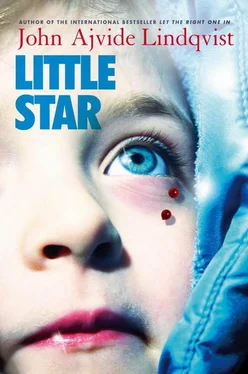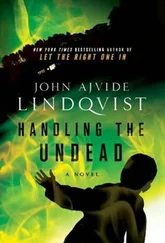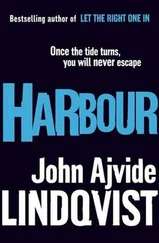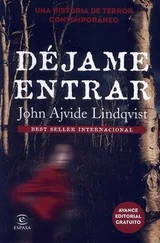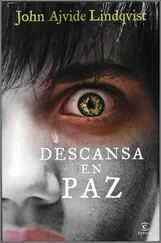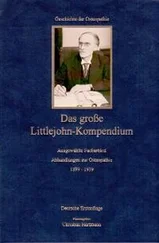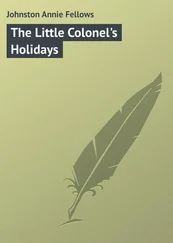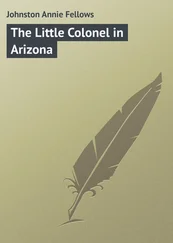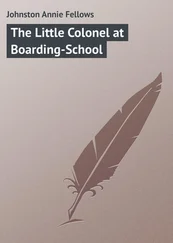And at long last came the scream she had longed for.
The girls gathered around the body, which was twitching like a landed fish as the blood spurted, with dwindling force, from the hole in the temple. Theres stood at the top and stroked the sticky hair from Max Hansen’s forehead. She said, ‘Come closer.’
They moved right in, fourteen girls. A rattling came from Max Hansen’s throat, then the body lay still. The blood stopped flowing from the temple, and as if that little black hole were a point of higher gravity, they were all drawn closer, as close as possible, as thin wisps of smoke extended like cobwebs.
They breathed in collectively, inhaling the essence that had been Max Hansen and incorporating it with the circulation of their own blood. But it was so little, much too little. Several of them moved their lips closer to the hole to force out something that was no longer there, almost kissing Max Hansen’s lacerated skull in order to lap up the very last bit.
They straightened up and the light in the garage was so bright, the iron-rich smell of blood so strong, and the sound as their feet stuck to the plastic and pulled free sliced through their ears. Their breathing was uneven as they returned to their wide-open bodies.
‘We are here,’ said Theres. ‘Now we are here.’
***
Many spent the night crying. Their senses were open wounds, their perceptions too powerful. They consoled and held one another, shared sleeping bags or lay caressing each other’s faces without speaking.
But in spite of the tears and the need for comfort, the underlying feeling was one of happiness. A different kind of happiness. A happiness so great, so piercing, that it had something of grief in it. Because it couldn’t last forever, it was far too intense for that. They could keep it alive together through the closeness of their bodies and their shared experience, but at some point it must fade and die. So: the grief.
It was yet another sleepless night, and before dawn they went out under cover of darkness to clean up. A group of them carried Max Hansen’s plastic-wrapped body down to the grave and threw it in along with his clothes, then filled the hole with earth and stones before carefully replacing the turf and stamping it down. Within a couple of weeks the turf would have grown into the surrounding grass. The others tidied up the garage, washed all the tools and scrubbed the work benches.
When dawn came and they had restored everything to its original state, they gathered on the jetty to watch the sun rise. Linn still had tears in her eyes, but not for the reason the others thought. When they had allowed the first rays of the sun to warm their faces for a while, Linn folded her arms, turned to Teresa and said, ‘Next time I want to use the drill.’
It was perhaps not quite the last thing Teresa had expected, but almost. Linn’s little face looked so sulky that Teresa burst out laughing, and soon several of the girls were laughing. Linn looked around, her expression furious.
‘What are you laughing at? I got practically nothing !’
The laughter quickly died down and there was silence as they looked at each other. They no longer needed to talk as much in order to communicate, and it appeared that several of them had been thinking along the same lines as Linn.
Next time. There was going to be a next time.
At about twelve o’clock the shuttle service to the bus stop began. Theres had had a long conversation with Anna L, and Anna said she did want to be involved in the future, but that she would need the others’ help. She would get it; that was the whole point of being a pack rather than fourteen girls. They gathered around her, they held her and shared their strength with her. Ronja offered to drive her car to Mörby so that she could travel on the bus with the others.
This turned out to be a valuable experience, because it was only on the bus that the experience finally seemed to settle within her, as they took up the whole of the back of the bus together and Anna found herself in a familiar environment, but no longer defenceless and afraid. No, she was sitting here now with her family -who had been buried and risen again, the hungry sharp-toothed ones, her sisters in the pack who would defend her. Then at last happiness came to her.
‘You all kind of belong to me, don’t you? And I belong to you. We’re together in this. Seriously together. We can do anything at all, and we’ll never let each other down, will we.’
It wasn’t a question, it was a statement, and Anna took a deep breath and flung her arms wide, as if she had only just fully risen from the grave.
They parted company at different places along the way, having decided to meet again the following Sunday in the usual place. Teresa went on to Svedmyra with Theres. In spite of the fact that they were alone for the first time in over twenty-four hours, they didn’t say much, didn’t discuss what had happened or the others’ reactions. It wasn’t possible, because the others no longer were the others. It was not possible to talk about them as if they weren’t there.
They went their separate ways at the front door of Theres’ apartment block. As Teresa turned to head back towards the subway station, Theres said, ‘It was good.’
‘Yes,’ said Teresa. ‘It was very good.’
On the subway and then on the train home, there was just one word going round and round in Teresa’s head, jerking and bumping about like a fish in a bowl that was far too small.
Urd. Urd. Urd.
Voices under the ground. On one level she knew that it was an image created by her oxygen-starved brain as she lay buried. On another it was real and true. Urd had come to her, lain down behind her and then put on her thin skin like a close-fitting suit. Urd was no longer merely her name. Urd was her.
***
Teresa woke up in her own bed at six o’clock on Monday morning feeling like a calf about to be turned out to pasture. The barn door had been opened after the long winter, and before her lay green meadows, flowers and the bright summer. There was a word for it: joyfulness. As she stood at her window wide awake, gazing out over the garden, she felt full of joy, and her whole body, not just her legs, was full of energy.
When the household began to wake up an hour later she lay down on her bed and pretended to be half-dead. She rubbed her eyes hard for a long time to make them look terrible, and when Maria came in Teresa explained that she felt awful and just couldn’t get up, couldn’t do anything. This was accepted with a sigh and a shrug, and Teresa was left in peace.
It was like that poem by Bob Hansson she had read a year or so earlier. The man who phones work and explains that he can’t come in. Why not? Is he ill? No, he’s far too healthy, but he might be in the following day if he feels worse.
She lay in bed impatiently waiting for the others to go off to work or to see friends so that she could be alone. When the house was finally empty, she got up. The first thing she did was to go down to the kitchen and pour herself a glass of water.
She sat for a long time looking at the clear liquid in the glass, enjoying the play of the surface and the spectrum of colours on the tablecloth when she tilted the glass and allowed the light to break up. Then she raised the glass to her lips.
A shudder ran through her body as the water slipped into her mouth. It was smooth and cool and crept over her tongue and palate like a caress. And they say water doesn’t taste of anything! It tasted of earth and iron and grass. Saltiness and sweetness in thin layers, the taste of depth and eternity. When she swallowed it was like receiving a gift, being able to taste something so delicious. And she still had plenty left in her glass.
Читать дальше
